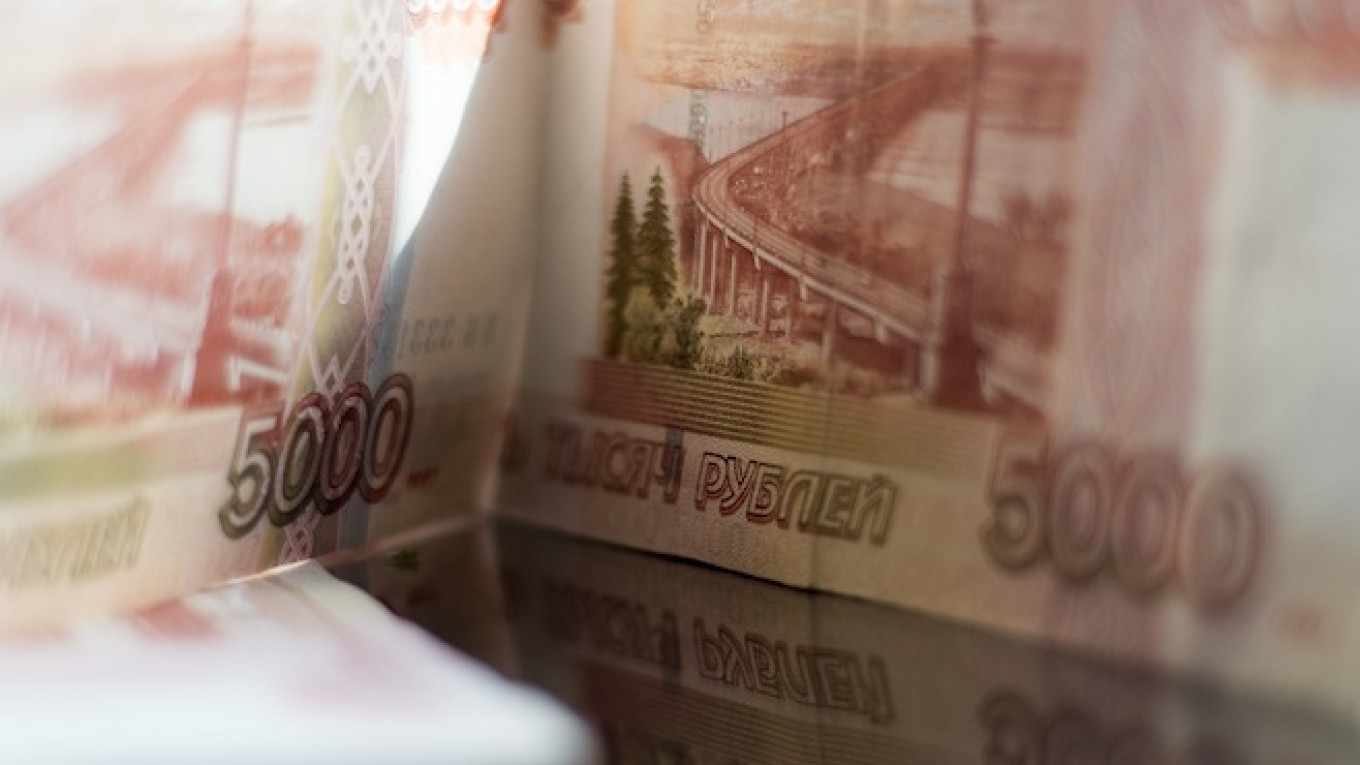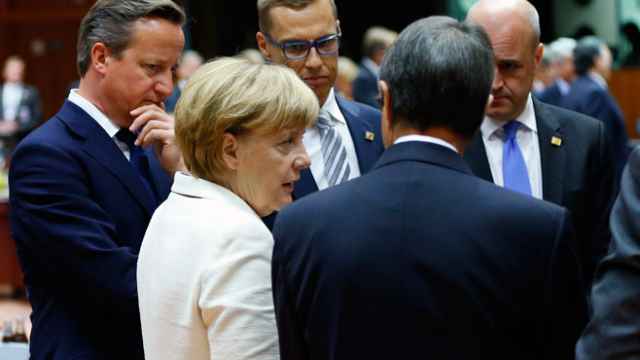Russian stocks rebounded on Friday as investors concluded that the market had over-reacted to new European Union sanctions against Moscow over the Ukraine crisis, but the ruble hit a new record low against the dollar.
The EU's new sanctions further restrict access to foreign capital for Russia's largest state-controlled companies, including top energy firms. The United States was expected to follow on Friday with similar measures, targeting Russia's largest bank Sberbank.
At 2:09 p.m., the dollar-denominated RTS index was up 0.37 percent to 1,222 points, while its ruble-based peer MICEX was 0.79 percent higher at 1,460 points. Both indexes had fallen more than 1 percent in the previous session after the EU sanctions were announced.
"The main negative effect was already played out yesterday," said Mikhail Kuzmin, analyst at Investcafe. "Now we're rising only because some people expected something worse."
"Those sanctions that were adopted by the EU aren't especially strong, because they are only slightly changing the previous sanctions. The main question is how Russia will react. If it will be very tough sanctions then the market will fall into the red again," he added.
A Kremlin aide has said that Russia might retaliate by imposing limits on used car imports and certain textile goods — steps that appear far less economically damaging than a ban on Western food imports introduced in August.
Stocks in sanctioned oil companies also rallied, suggesting investors had previously over-reacted to measures which may have little immediate impact as Western banks and investors are already shunning new financing for major Russian companies. Rosneft was up 1.43 percent and Transneft rose 1.2 percent.
Despite the rally in stocks, the ruble fell to a new historic low against the dollar, hit by weakness across emerging market currencies. At 2 p.m. it was trading at 37.64, having earlier fallen to as low as 37.73. The ruble also lost 0.36 percent to 48.65 versus the euro and 0.35 percent to 42.59 against the dollar-euro basket.
ING economist Dmitry Polevoy said in a note that publication of the EU sanctions was unlikely to have a major market impact as the details coincide with previous media reports: "Here it's difficult to separate out the effect of sanctions from the falling oil price," he said, in reference to the ruble's decline to a record low.
"The market's direction towards the level of 38 could well be realized, but as before we don't believe in its stability [at that level] in the longer term ... Export flows are still awaited and their arrival on the market to pay taxes could lead to quite a sharp [upward] movement in the ruble."
Major Russian exporters need to pay monthly taxes in two weeks' time, requiring them to convert dollar export revenues into rubles. Analysts at VTB Capital said that the ruble has been falling in line with other emerging market currencies, noting that the South African rand and Turkish lira were down 0.5-0.6 percent on Thursday.
Emerging market currencies are facing downward pressure because of expectations that the United States will raise interest rates in the coming months, making lower-risk assets more attractive.
A Message from The Moscow Times:
Dear readers,
We are facing unprecedented challenges. Russia's Prosecutor General's Office has designated The Moscow Times as an "undesirable" organization, criminalizing our work and putting our staff at risk of prosecution. This follows our earlier unjust labeling as a "foreign agent."
These actions are direct attempts to silence independent journalism in Russia. The authorities claim our work "discredits the decisions of the Russian leadership." We see things differently: we strive to provide accurate, unbiased reporting on Russia.
We, the journalists of The Moscow Times, refuse to be silenced. But to continue our work, we need your help.
Your support, no matter how small, makes a world of difference. If you can, please support us monthly starting from just $2. It's quick to set up, and every contribution makes a significant impact.
By supporting The Moscow Times, you're defending open, independent journalism in the face of repression. Thank you for standing with us.
Remind me later.






